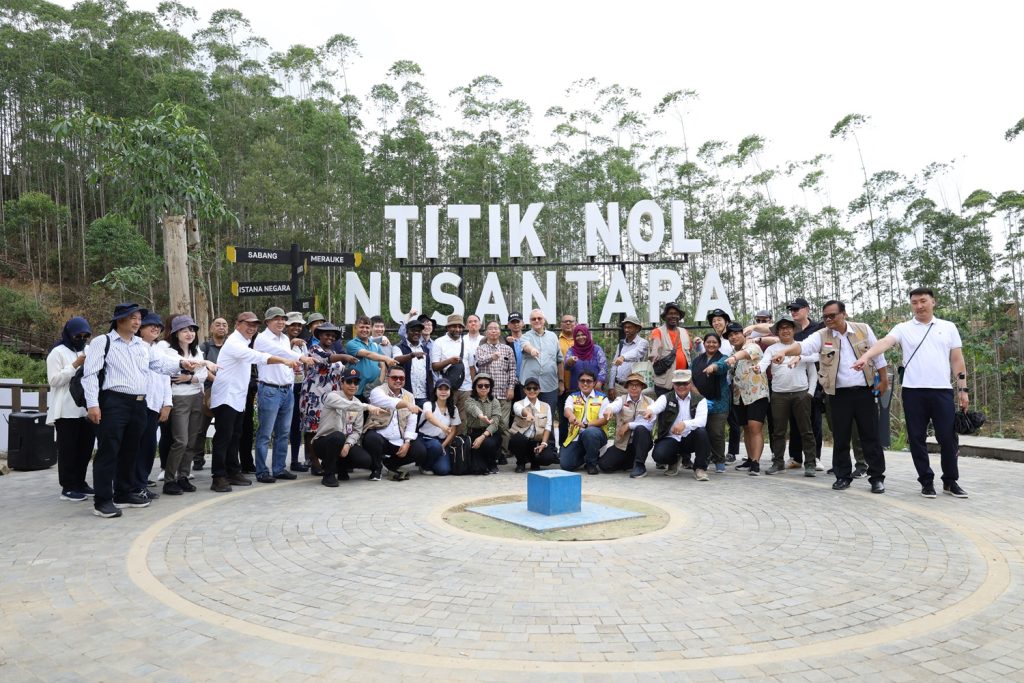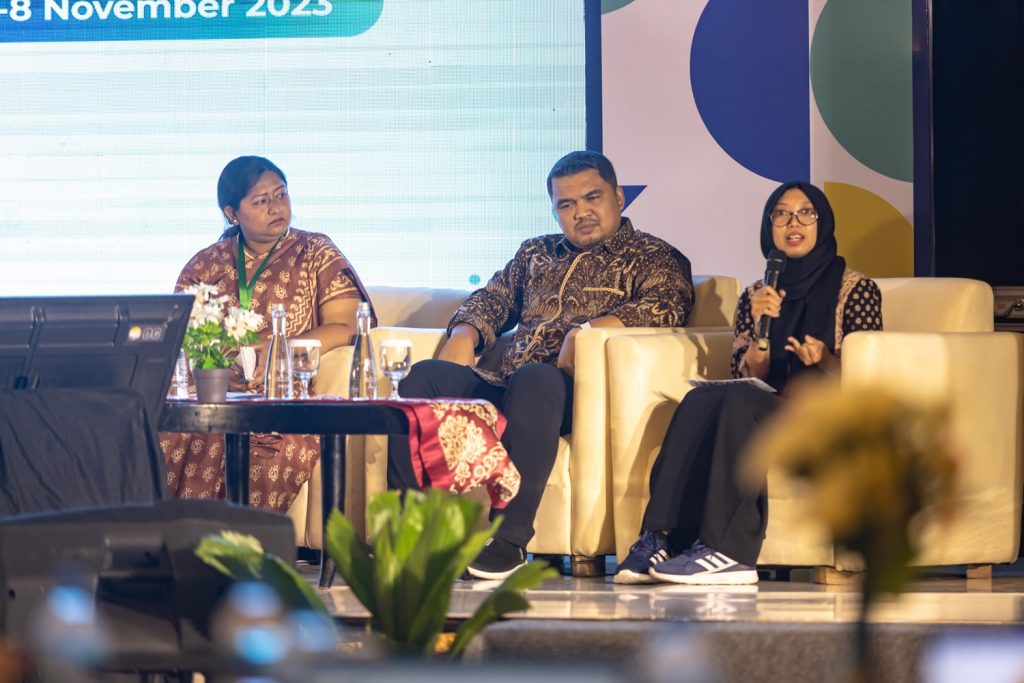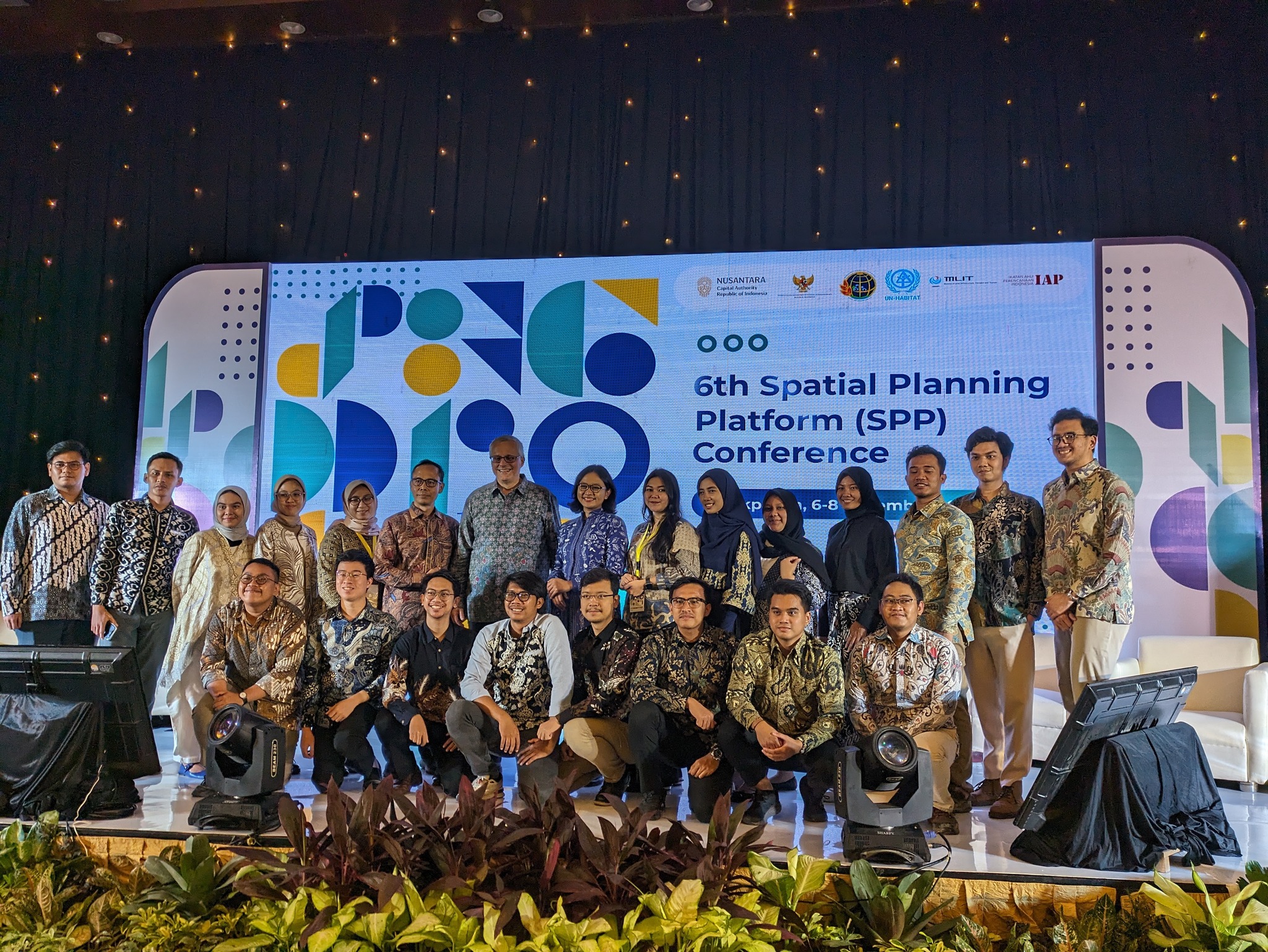28 November 2023, Balikpapan City, Indonesia – On 6-8 November 2023, the sixth edition of the Spatial Planning Platform (SPP) Conference convened in Balikpapan City, East Kalimantan Province, Indonesia.
SPP is an initiative of the Ministry of Land, Infrastructure, Transport, and Tourism (MLIT) of Japan and is supported by UN-Habitat’s Regional Office for Asia and the Pacific (ROAP) in Fukuoka. Through SPP, the Government of Japan shares its long tradition in national spatial planning.
Also Indonesia now underscores the importance of national spatial planning. In his opening statement, the Indonesian Minister Hadi Tjahjanto in charge of land administration and spatial planning highlighted that “Quality spatial planning is essential for economic growth, reducing regional disparities, and creating sustainable spaces. This is pivotal in realizing the vision of Indonesia becoming a developed country by 2045.” Co-host Indonesia received the participants in Balikpapan, near the location where the country’s new capital is being built. The Chair of the Nusantara Capital Authority, Mr. Bambang Susantono was also co-host of the Conference and guided the participants around in the capital under construction. Other co-hosts were the Coordinating Ministry of the Economy and the Indonesian Association of Planners.

Senior officials from no less than 16 countries, including Bangladesh, Bhutan, Cambodia, China, India, Indonesia, Japan, Kenya, Lao PDR, Mongolia, Mozambique, Nepal, Pakistan, Sri Lanka, Thailand and Uganda are now part of the SPP knowledge network and came in-person to Indonesia for the event. Concurrent efforts to strengthen National Urban Policies were highlighted by OECD and UN-Habitat representatives during the meeting. Local government, professional planners including young planners joined in.

The UN Resident Coordinator for Indonesia, Ms. Valerie Julliand, was also at the opening and joined in on underscoring the messages for sustainable development and effective urbanization, leaving no one and no place behind. Mr. Bambang Susantono received from her a Declaration of Intent of the UN system in Indonesia to localize the SDGs in the development of Nusantara.
Leaving no one and no place behind was also a message delivered by Bruno Dercon, the Officer-in-Charge of ROAP. National spatial planning addresses issues of spatial justice at a territorial level, yet planners must contribute to the same at all levels. With support of JICA, the development challenges of Nusantara and the nearby existing cities Balikpapan and Samarinda were discussed, also by local representatives, given that this future city cluster will set the expectations of the urban quality of life for many areas of Indonesia.
Mr. Tomonori Tsutsui, Deputy Director-General of MLIT, introduced Japan’s newest national spatial strategy. The conference featured rich international perspectives, with speakers from various countries representing their spatial planning frameworks and progress. National Spatial Planning requires the development of national planning systems and takes place in the wider space of subnational, national and transnational social-economic development and the long-term development visions and commitments of countries and regions. Formulating effective National Spatial Plans is challenging for developing countries and good practices are poorly documented. Often, a good National Spatial Plan takes years to work and agree on.
The SPP partners met in February 2023 already in Kathmandu, Nepal and reconvened now in Indonesia, with great delight. The Platform is now increasingly recognized as a unique opportunity to discuss the unique trends, challenges and approaches of formulating national spatial plans. At the end of the three-day meeting, senior policy makers and specialists recognized that there are few opportunities to discuss this level of planning and the experience to come to results and move around challenges that directly among developing countries as has been possible at the SPP meetings.



